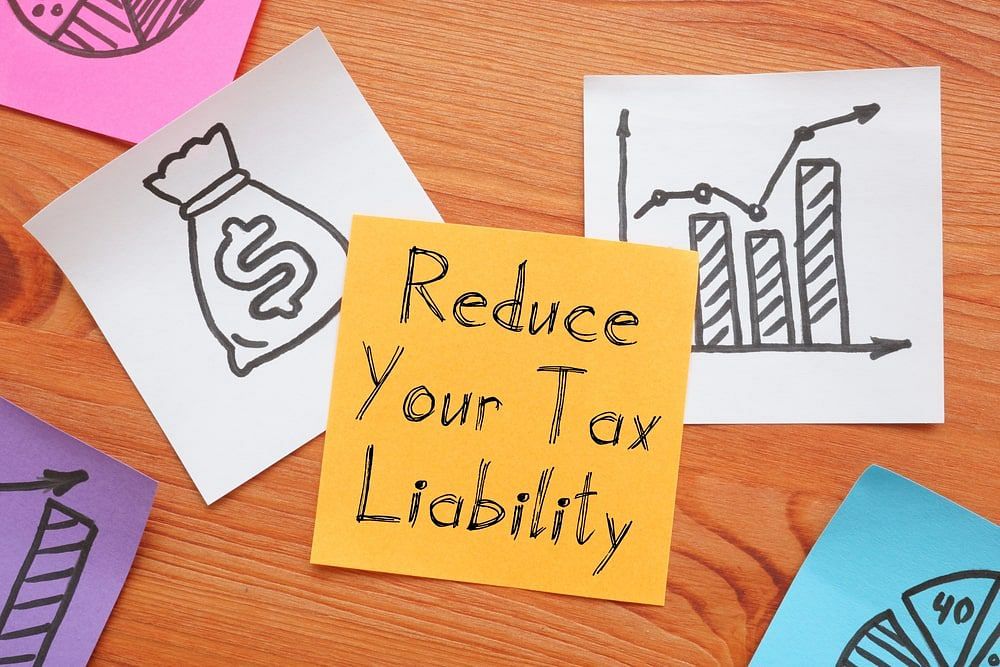
The tax part of income is no one’s favorite. You have tax duties to meet whether you own your own business or not. It can be messy, confusing, and costly when you get it wrong.
If you need clarification about your taxes, you've come to the right place. This is the ultimate tax hack, so remember to take notes—come tax filing season, you’ll be ready!
Tax liability is the amount of money you are required to pay the government based on your income. People with low income are often exempted from paying taxes, but there are also people that pay taxes through federal income taxes or payroll taxes.
Tax liability also comes in different forms. It can come from state and local taxes, excise, sales, or other taxes from things that generate income.

We have already established that there are different forms of tax liabilities. To help you better understand tax liabilities, below are some of the most typical categories.
All employers are subjected to federal income taxes. In other cases, their income is also subject to local and state taxes. It is a common practice for employers to withhold income tax liabilities from their employee's wages. Your income tax obligation can also include a tax on your business income if you're not a legal organization. You can pay an estimated tax amount for your income tax debt throughout the year.
Both the employer and employee shares of the social security and Medicare taxes are covered by the self-employed tax. Social security and Medicare taxes must be deducted from an employed person's income. Self-employment tax can be paid through anticipated tax payments.
Payroll taxes are the money employers withhold from the payroll and the money they spend to generate their income tax liability. These taxes should be filed to the IRS according to a schedule.
Capital gains tax liability is levied on generated income when an investor successfully makes a sale in their investments. The tax owed is applicable during the fiscal year the investment is sold. Capital gains tax rates can vary between 0%, 15%, and 20%depending on the filer's income.
An individual may owe a long-term capital gain when an income from the investment is owned for at least a year. If not, short-term capital gains are applied. For short-term capital gains, the tax rate depends on the payer's ordinary income bracket.
Small businesses also have a share of their tax liability. Here are some events when tax liabilities are applicable for small businesses.
If you want to get ahead of your taxes, you can calculate your tax liability by yourself. Here are a few easy steps to assist you in appropriately calculating them.
Step 1 - Identify the category to which you or your company belongs.
Step 2 - Calculate the quarterly estimated tax payments using a calculation tool.
Step 3 - If you're a C corporation, you need to calculate your taxes using the corporate tax scheme, which has eight different tax rate brackets and a flat tax rate regardless of the corporation's income.
Step 4 - If you are not a C corporation, you are a flow-through entity, which means you are responsible for paying your own taxes rather than those of the company. Your tax rate is determined by your taxable income as well as how you file your taxes.
Step 5 - Pay your estimated taxes. Payments for income taxes are due in April. However, federal tax liability should be paid whenever they are incurred. Depending on their taxable income, the majority of small firms should make anticipated tax payments throughout the year.
Step 6 - Pay employment taxes. These taxes usually include the following:
Step 7 - Once you're done calculating tax liability, the last step is to pay the taxes you
owe.

If you're stressed about the amount of taxes you need to pay, there are some ways you can reduce your tax liability. Take note of these tips to help reduce your tax bill.
Tax credits are the best way to reduce the tax you owe. You can make full use of a number of available tax credits. These credits can reduce the amount dollar for dollar compared to deductions, which is based on percentages.
Here are some ways to earn tax credits.
Your Individual Retirement Account (IRA) contributions are a great strategy to reduce your tax liability. Most pre-tax contributions to traditional IRAs are made before taxes are deducted, lowering your taxable income for the current tax year. Taxes on your donations will be due once you remove the funds.
Charitable contributions are another way to lessen your tax bill. Donations of cash, toys, appreciated stock, or volunteer efforts to qualified organizations can provide substantial tax savings. Here are some things to remember.
You can deduct a huge variety of company expenses. So make sure to keep and document receipts so you have records when you declare them as deductions. Here are some business expenses you can use as deductions.
Tax obligations are complicated. With so many numbers, it's easy to become confused. Fortunately for business owners, Unloop is here to help you handle your tax liabilities.
We offer different services to handle all your accounting needs. Our services include bookkeeping, accounts payable, forecasting, payroll, and taxes. Book a call with us today and talk to an expert for free.
Unloop is the first and only accounting firm exclusively servicing ecommerce and inventory businesses in the US and Canada. With the power of people and technology, our team dives deep into COGS and inventory accounting. You are paired with a dedicated bookkeeping team that prepares accurate financial statements, financial forecasts, and can also pay bills or run payroll for you. Come tax time, everything is organized and ready to go, so you don't need to worry. Book a call with an ecommerce accountant today to learn more.